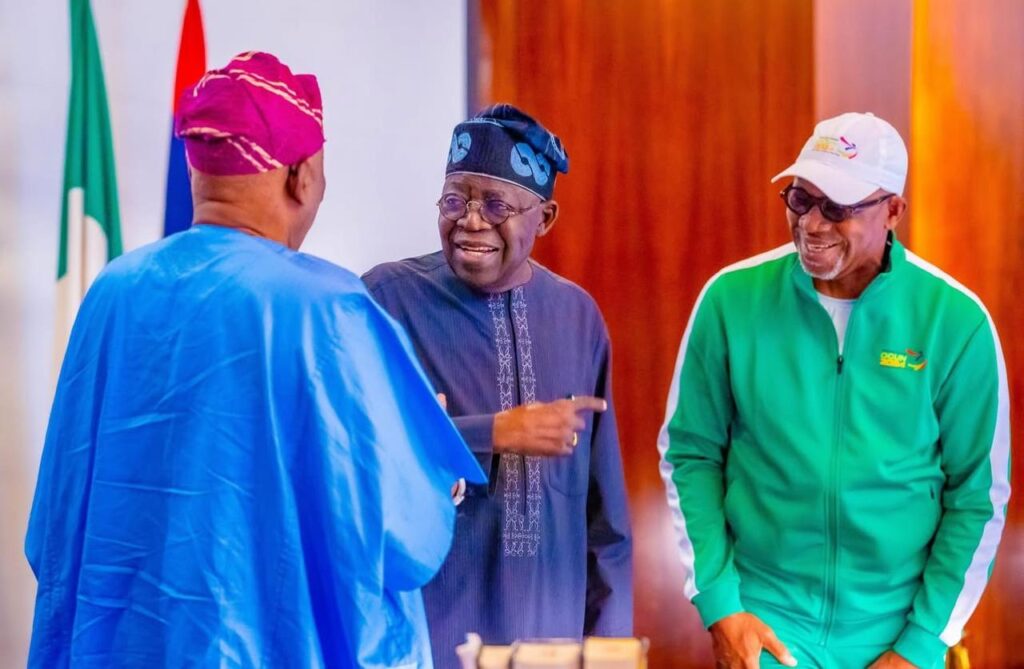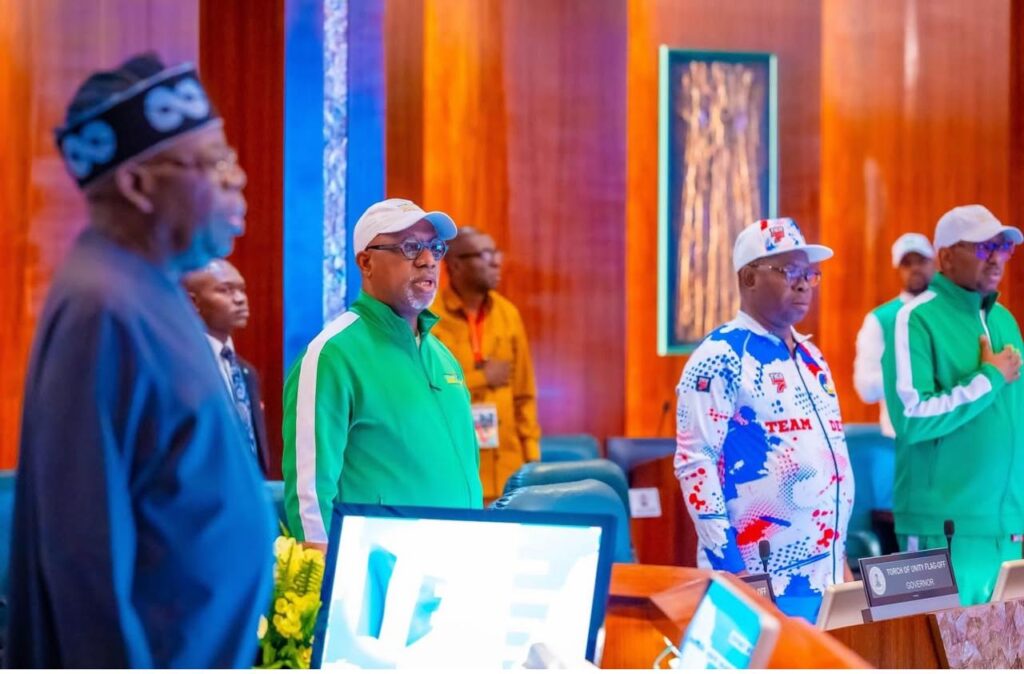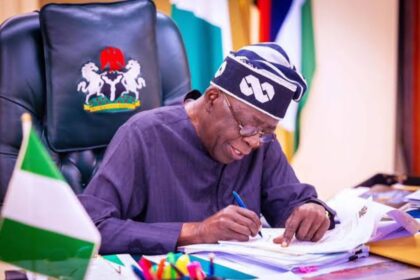● Ogun’s Glorious March to Pinnacle of Nigerian Sports
● From Abeokuta to the World: Gateway State Transforms to Nigeria’s Coliseum Of Dreams, Discovery
Drums roll through the ancient valleys of Ijebu, and cool winds carry glad tidings of glory across the granite ridges of Olumo in Abeokuta, Ogun State. The rock city girds it loins to host a sports festival. To achieve this, it is scripting a sensational sports saga; a grand confluence where history, hope, and heroism will meet under the torrent and sunbeams of May. From red earth to radiant arenas, from local lore to global light, the Gateway State beckons the nation with arms wide open and heart aflame, as it sets to host nationwide athletes at the 22nd National Sports Festival (NFS), an epic tournament slated for May 16 to 31.

What rises in Ogun is not just a tournament, it is a triumph foretold. The 22nd National Sports Festival is set to dawn over Abeokuta’s peaks with silvery dazzle and unrivalled glamour. Guided by the visionary compass of Governor Dapo Abiodun, this edition is not content to compete with the past, it seeks to outshine it. A celebration of spirit, speed, and statecraft, Ogun 2024 promises to be the festival that crowns a nation’s potential and rekindles the sacred fire of unity.
The stadiums are ready. The anthem is written. The fire has been lit—not just in the cauldron of competition, but in the hearts of over 15,000 pilgrims of passion, purpose, and prowess who will descend upon Ogun State. It is a festival, yes—but more than that, it is a declaration. Ogun 2025 shall not only be the best Sports Festival Nigeria has ever seen—it shall be the finest Africa has ever known.
In a flourish of readiness underscored by excellence, Ogun State, once again, steps forth into national prominence—this time not by accident, but by divine preparation. Governor Dapo Abiodun’s recent inspection tour of the MKO Abiola International Stadium, the Olympic-sized swimming pool, and other state-of-the-art facilities across Abeokuta was no mere ceremonial stroll—it was a monarch’s final anointing of his empire of sport.
“Every structure stands ready,” the governor declared, with the assurance of a statesman and the pride of a builder. “These are not edifices for a season, but monuments for generations.”
Each brick, each lane, each bleacher echoes Ogun’s new gospel: that sports are no longer pastimes, but pathways—to unity, to economy, to greatness.
At the heart of this unfolding epic stands the MKO Abiola International Stadium—soon to be rechristened the MKO Abiola Sporting Complex—no longer just a venue, but a shrine of national reverence. Polished and poised like a crown jewel, the stadium now boasts tracks that have already attracted continental acclaim, earning Ogun the right to host the Under-20 African Athletics Championship in 2026.
Governor Abiodun’s pronouncement was as clear as Ogun’s morning skies: the stadium shall serve only sports. Non-sporting events—rallies, ceremonies, and political jamborees—have found a new home in a separate, dedicated pavilion under construction. Thus, the field is sanctified, reserved for athletic glory alone.
This bold repositioning is not just about infrastructure—it is about identity. Ogun is not merely hosting a festival; it is consecrating a cathedral of performance.

What is a festival without its soul? In a grand cultural flourish, the June 12 Cultural Centre recently played host to the unveiling of Ogun 2025’s spirit symbols: a radiant logo, a stirring theme song composed by the prodigious Bayo Adepetun, and a mascot brimming with youthful energy and cultural identity—crafted by the finest hands in Ogun’s Ministry of Culture.
These are no hollow tokens. They are totems of collective identity, emblems of a festival that seeks not just to entertain, but to enshrine meaning, memory, and movement. And as the drums beat and the trumpets soared in Abeokuta, so did the aspirations of millions.
There is no gainsaying Governor Abiodun sees what only visionaries see; that beneath the surface of the games lies inestimable value. With over 15,000 athletes, officials, and spectators expected to grace Ogun’s soil, the festival is an economic avalanche waiting to happen. From hotels to food vendors, from souvenir merchants to transport operators, Ogun’s economy shall not just witness a spike—it will pulse with life. Local businesses are springing to action; artisans prepare their crafts, chefs sharpen their knives, and hosts open their arms.
Olumo Rock and other tourist beacons are being dusted and polished, ready to receive curious visitors from across Nigeria. “This festival will redefine sports tourism in Nigeria,” Governor Abiodun declared, “and Ogun will be its capital.”
The investment is heavy, but it is wise. The sporting facilities built and upgraded for Ogun 2024 are not ephemeral stages—they are future citadels of Nigerian athleticism. Tracks that kiss international standards. Courts that gleam with potential. Pools that ripple with promise. This is the infrastructure of destiny.
“We are not building for today,” the governor assured, “we are establishing Ogun as Nigeria’s eternal theatre of sports tourism and performance.”
And indeed, long after the cheers have faded, these monuments shall remain, drawing champions and dreamers alike. Perhaps the most moving element of Ogun 2024 is not the polished wood of basketball courts or the sheen of newly-laid tartan tracks, it is the beating hearts of the people. Governor Abiodun’s voice resonated with both authority and affection as he extended a rousing call to every son and daughter of Ogun—at home and abroad—to rise as one. “This is our moment to shine,” he said. “Let us welcome the nation with grace, warmth, and hospitality. Let us show the world who we are,” he said, adding that the festival is not just the state government’s; it belongs to the tailors and the schoolchildren, the bakers and the bike riders. It is every market woman’s smile, every drummer’s beat, every child’s dream.
Few days to the tournament, there is palpable excitement across the quiet corners of Ogun’s towns, as young athletes lace their shoes with hopes of glory. For them, the National Sports Festival is a gateway to a life unimaginable.
Governor Abiodun has never lost sight of this truth: that sport is the most democratic of altars. A humble boy from Iperu or a girl from Ilaro can step into the arena and walk out as national heroes.
It is this sacred potential that has driven the governor’s relentless preparation. “Sport is a unifier,” he said. “A platform of discovery. For many, this may be the beginning of something remarkable.”
He called on parents to support their children in sport. Because buried in each child is a champion, if only we give them the field on which to rise.
Ogun 2025 is not Ogun’s alone. It is Nigeria’s. As the governor looked beyond the state’s borders, he extended warm hands to every corner of the federation. “We are ready to host. But to make this unforgettable, we need all hands on deck,” he said.
By hosting the NFS 2025, Governor Abiodun is not just positioning Ogun as a regional beacon, he is placing it boldly on the map of global sports diplomacy.




